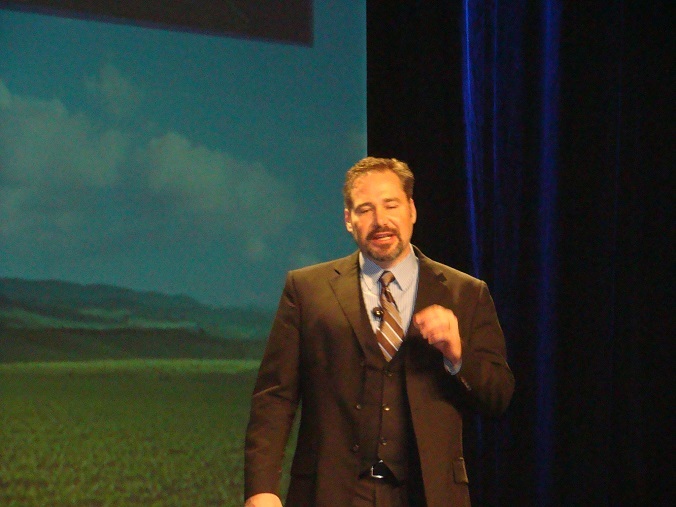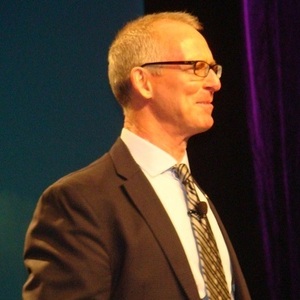Biodiesel poised to fuel US carbon strategy



Photo: Ron Kotrba, Biodiesel Magazine
January 26, 2016
BY The National Biodiesel Board
Everyone loves an underdog. Often overlooked in the shadow of more established products and challenged by misinformation, the biodiesel industry is gearing up for what could be its best year yet.
In the opening general session of the National Biodiesel Conference & Expo, underway at the Tampa Convention Center this week, it was clear that America’s advanced biofuel is here to fight and win.
“Last year the biodiesel industry demonstrated more than ever that no matter how beat up we are, no matter how outgunned we are, we don’t back down,” said National Biodiesel Board CEO Joe Jobe. “We came together like never before. We stayed true to our principles in the face of deceitful attacks and we achieved the success necessary to put us back on track.”
The industry marked several major achievements in 2015. First, the renewable fuel standard (RFS), the federal law governing renewable fuel blending, is back on track and on schedule for the first time in its history with volumes defined for biodiesel through 2017. Second, the industry secured an extension of an important tax law that helps make the fuel more cost competitive with heavily subsidized petroleum. These two programs together provide biodiesel producers, investors and suppliers a strong roadmap for the marketplace. This is a big victory for biodiesel, carbon reduction strategies and for the environment.
Advertisement
Advertisement
Biodiesel is a cleaner-burning, renewable diesel fuel replacement made from an increasingly diverse mix of resources such as recycled cooking oil, soybean oil and animal fats. Last year’s biodiesel use in the U.S. cut carbon by some 18 million metric tons or the annual greenhouse gas emissions of 3.8 million cars.
Though optimistic, Jobe also noted significant challenges still remain. “While our fight is not over, we have a different future. 2016 is going to be our strongest year yet,” he said. “A year we will show that we are ready to take on one of the biggest challenges of our time.”
That challenge begins with standing up for the truth. The biodiesel industry has always relied on science-based facts to support sustainable growth. Now the truth has come under attack.
Intentional strategies of deception, modeled after those pioneered by the tobacco industry, are working to spread doubt about climate change and the need for action.
“The strategy of disinformation is now being deployed to attack renewable energy and climate change science,” Jobe said. “Our opponents will continue to use outrageous and desperate tactics as they continue to undermine and work to repeal the only carbon reduction policy currently available in the transportation sector. In the face of a bizarre revival of science-rejection and a seeming indifference toward the truth in public discourse, we must maintain our position as an industry committed to objective science, critical thinking, and the truth.”
Advertisement
Advertisement
The phenomenon of misinformation was exposed by the documentary movie, “Merchants of Doubt,” based on a book by the same name. As part of the conference the National Biodiesel Board and the Citizens’ Climate Lobby offered a free public screening of the movie Jan. 26 at the convention center.
Former Republican Congressman and climate disputer turned advocate Bob Inglis, who appeared in the documentary, was also featured in the opening general session.
“It’s fabulous when an important industry group like the National Biodiesel Board calls for an objective consideration of climate science and an apples-to-apples comparison between the competing fuels” said Inglis, executive director of RepublicEn.org. “With that kind of clarity, free enterprise can fix climate change."
The conference continues through Jan. 28. Florida residents are invited to participate in public day free-of-charge Jan. 27.
Related Stories
While final IRS guidance is still pending, the foundation of the 45Z program is well defined. Clean fuel producers should no longer be waiting; they can now move forward with critical planning and preparation, according to EcoEngineers.
The IRS on July 21 published a notice announcing the 2025 calendar-year inflation adjustment factor for the Section 45Z clen fuel production credit. The resulting adjustment boosts maximum the value of the credit by approximately 6%.
The U.S. Senate on July 23 voted 48 to 47 to confirm the appointment of Aaron Szabo to serve as assistant administrator of the U.S. EPA’s Office of Air and Radiation. Biofuel groups are congratulating him on his appointment.
U.S. Secretary of Agriculture Brooke L. Rollins today announced the reorganization of the USDA, refocusing its core operations to better align with its founding mission of supporting American farming, ranching, and forestry.
The U.S. Department of Energy’s Office of Energy Efficiency and Renewable Energy is soliciting public comments on a preliminary plan for determining provisional emissions rates (PER) for the purposes of the 45Z clean fuel production credit.
Upcoming Events










